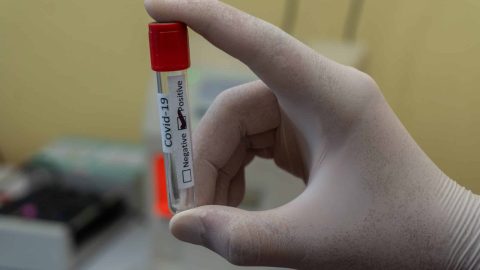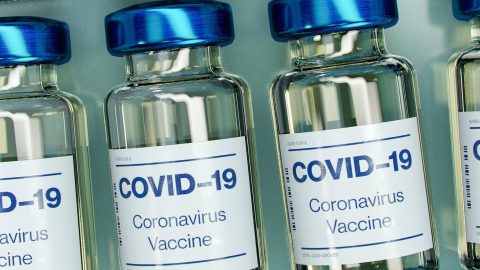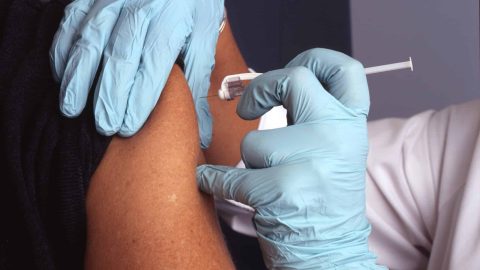Recently, the first documented case of reinfection with SARS-CoV-2 has apparently surfaced in Hong Kong. A day later, Belgium and the Netherlands also reported a reinfection each. Is it time to worry about acquired immunity and vaccine efficacy? There are three scenarios how this might turn out.
Scenario 1: Bad Tests – No Worries
Even the most advanced PCR test used to diagnose Covid-19 are far from perfect with a false positive rate of 0.08%. With 1 in 125 tests producing a false positive it is not hard to imagine a scenario where someone is declared reinfected when in fact the person either didn’t have Covid-19 yet or/and doesn’t have it now. Even with two tests, the odds still allow for 1 double false positive in 15 000 cases.
The odds for a triple false positive are 1 to 2 million. With millions infected across the globe, false positive rates sometimes reported as high as 4% and no way of going back to verify a supposed primary infection it is rather surprising we have not seen more “reinfections” sooner.
Scenario 2: No Absolutes in Real Life – No Worries
The real world is messy and does not work in absolutes. Just like there will probably never exist a 100% effective vaccine, it is unreasonable to assume that with millions of infected people there won’t be a small percentage of people, who, due to a combination of hitherto unknown environmental factors, comorbidities and plain bad luck, will not develop immunity to SARS-CoV-2.
Even with measles, a disease that is known to elicit life-long immunity after infection or vaccination, there exist rare reported cases of reinfection (recent papers in Clinical and Vaccine Immunology and NEJM).
Scenario 3: Short Immunity – Some Worries
Leaving aside the catastrophic scenario of enhanced reinfection, as seen in Dengue fever, for which we have no evidence, the worst case would suggest that immunity against SARS-CoV-2 is short-lived (6-12 months).
This does not automatically mean that vaccines won’t be able elicit longer lasting immunity. Unlike the flu, SARS-CoV-2 appears to not mutate much and the probable reason why immunity might be short lived is that the body does not maintain the relevant antibodies.
This implies that a larger dose of the vaccine or annual booster shots of the same vaccine might be enough to do the trick. In that case, combatting the pandemic becomes a logistical problem rather than a medical problem. In the case of booster vaccines, global vaccine production capabilities would need to be expanded considerably to vaccinate 6-7 billion people annually.
In summary, unless we see a massive surge of hundreds of reported reinfection cases, there is no reason to believe that the three cases known thus far are anything more than outliers. An end to the pandemic and a solid economic recovery in the medium term are still the most likely scenario.
Legal note:
Prognoses are no reliable indicator for future performance.
Legal disclaimer
This document is an advertisement. Unless indicated otherwise, source: Erste Asset Management GmbH. The language of communication of the sales offices is German and the languages of communication of the Management Company also include English.
The prospectus for UCITS funds (including any amendments) is prepared and published in accordance with the provisions of the InvFG 2011 as amended. Information for Investors pursuant to § 21 AIFMG is prepared for the alternative investment funds (AIF) administered by Erste Asset Management GmbH pursuant to the provisions of the AIFMG in conjunction with the InvFG 2011.
The currently valid versions of the prospectus, the Information for Investors pursuant to § 21 AIFMG, and the key information document can be found on the website www.erste-am.com under “Mandatory publications” and can be obtained free of charge by interested investors at the offices of the Management Company and at the offices of the depositary bank. The exact date of the most recent publication of the prospectus, the languages in which the key information document is available, and any other locations where the documents can be obtained are indicated on the website www.erste-am.com. A summary of the investor rights is available in German and English on the website www.erste-am.com/investor-rights and can also be obtained from the Management Company.
The Management Company can decide to suspend the provisions it has taken for the sale of unit certificates in other countries in accordance with the regulatory requirements.
Note: You are about to purchase a product that may be difficult to understand. We recommend that you read the indicated fund documents before making an investment decision. In addition to the locations listed above, you can obtain these documents free of charge at the offices of the referring Sparkassen bank and the offices of Erste Bank der oesterreichischen Sparkassen AG. You can also access these documents electronically at www.erste-am.com.
N.B.: The performance scenarios listed in the key information document are based on a calculation method that is specified in an EU regulation. The future market development cannot be accurately predicted. The depicted performance scenarios merely present potential earnings, but are based on the earnings in the recent past. The actual earnings may be lower than indicated. Our analyses and conclusions are general in nature and do not take into account the individual characteristics of our investors in terms of earnings, taxation, experience and knowledge, investment objective, financial position, capacity for loss, and risk tolerance.
Please note: Past performance is not a reliable indicator of the future performance of a fund. Investments in securities entail risks in addition to the opportunities presented here. The value of units and their earnings can rise and fall. Changes in exchange rates can also have a positive or negative effect on the value of an investment. For this reason, you may receive less than your originally invested amount when you redeem your units. Persons who are interested in purchasing units in investment funds are advised to read the current fund prospectus(es) and the Information for Investors pursuant to § 21 AIFMG, especially the risk notices they contain, before making an investment decision. If the fund currency is different than the investor’s home currency, changes in the relevant exchange rate can positively or negatively influence the value of the investment and the amount of the costs associated with the fund in the home currency.
We are not permitted to directly or indirectly offer, sell, transfer, or deliver this financial product to natural or legal persons whose place of residence or domicile is located in a country where this is legally prohibited. In this case, we may not provide any product information, either.
Please consult the corresponding information in the fund prospectus and the Information for Investors pursuant to § 21 AIFMG for restrictions on the sale of the fund to American or Russian citizens.
It is expressly noted that this communication does not provide any investment recommendations, but only expresses our current market assessment. Thus, this communication is not a substitute for investment advice, does not take into account the legal regulations aimed at promoting the independence of financial analyses, and is not subject to a prohibition on trading following the distribution of financial analyses.
This document does not represent a sales activity of the Management Company and therefore may not be construed as an offer for the purchase or sale of financial or investment instruments.
Erste Asset Management GmbH is affiliated with the referring Sparkassen banks and Erste Bank.
Please also read the “Information about us and our securities services” published by your bank.
Subject to misprints and errors.



